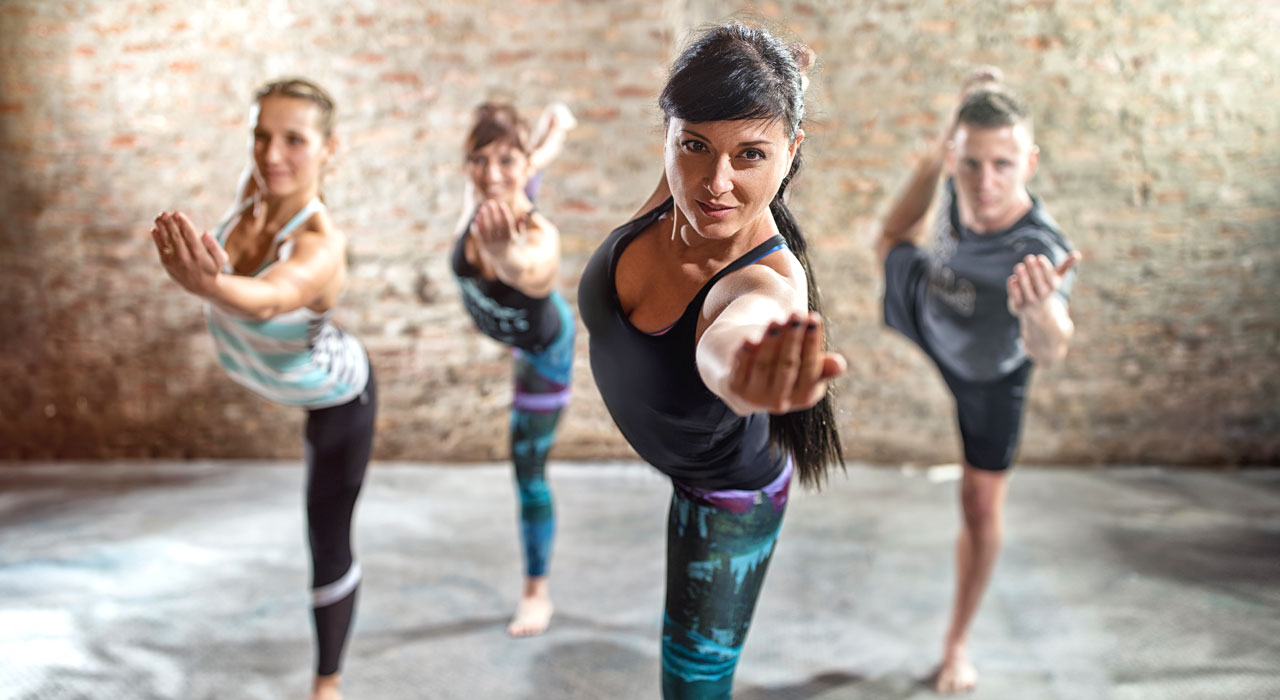Fitness
Are Fitness Classes Really ‘Just For Women’?
Last week, I asked my boyfriend if he’d like to come to my Zumba class and, although he was tempted, he declined my offer because he’d be the only man. He probably would have been, but I didn’t see why that would be a big deal. Plenty of men do Zumba in the world, they just aren’t at my studio.
Unintentionally, or not, we often stereotype fitness classes as ‘for women’ and the weights room as ‘for men’. Look around any gym and you’ll struggle to find many females pumping iron and it’s unlikely the Pilates class has a balanced ratio of the genders.
But, is there any real reason to our prejudices about fitness classes or are we just bound by what we think is ‘the norm’ and if so, how do we break out of it? TRAIN for HER investigates.
Truth in stereotypes
You might be reading this, a female weight fanatic who hates the idea of attending a legs, bums and tums class, but the rumors are true: women like cardio and men lift.
According to the National Center for Health, only 20% of women practice any form of strength training on a regular basis compared to men who often rate it as their top priority when working out. Apparently, almost half of ladies avoid the weights area because of the ‘type’ of people there and 14% are intimidated by the thought of men judging them.
Furthermore, a 2015 study, conducted by fitness tracker maker, Fitbit looked into the most popular fitness activities among men and women. It found that while everyone participated in cycling and running, women favored the fitness classes such as Pilates, dance, kick boxing and yoga whereas men preferred team sports such as hockey and golf.
In fact, fitness class participation among men at a measly 20%, but it begs the question, why?
Perception
Men often hear ‘fitness class’ and picture a group of women doing aerobics donning leg warmers and brightly colored leotards. Now, even though that vision should be left in the 70s, these types of assumptions don’t exactly scream ‘men, come and join in!’.
The language
Gendered language in the fitness industry is an ongoing issue. Have a look at your local gym’s class timetables and you’ll see the phrases ‘tone’, ‘booty workout’ and ‘sculpt’ over and over. No matter how self-assured a man is, being asked if they’d like a tight booty isn’t going to inspire him to sign up.
– RELATED: Should Women Really Be Working Out Differently To Men? –
Group activity
Although men tend to favor sports over women because of the #squadgoals, women are more likely to gravitate towards group fitness. For many women, having someone instruct you eliminates the fear of embarrassing yourself by doing something ‘wrong’.
However, 45% of gym members who participate in group fitness will visit their gym 5+ times a week on average. This is compared with only 34% for all gym members. So, by joining a group activity, you’re more likely to go rather than relying on your self-motivation.
Music choice
While Beyoncé might inspire you to work harder for that booty, female pop music isn’t the most motivating music for the opposite sex. Men will shy away if they think they have to be a single lady or that an extensive knowledge of Ariana Grande’s back catalogue is a requirement to participate.
Instructors
‘COME ON, LADIES’ is something we’re all used to hearing from our female instructor as we pedal through the last five minutes of our spin class. But, what if you’re not a lady, are you allowed to also ‘come on’? It may not seem like a big deal, but I know I’ve found it frustrating the other way around.
How do we tackle it?
Education and a change in perception is key to increasing male participation. Targeting classes for both men and women will only truly work if we begin introducing levelled exercises as fitness isn’t ‘one size fits all’.
Offering a beginner, intermediate and advanced option when appropriate will not only make men more likely to want to get involved, but it may help women continue to improve their fitness rather than being limited to a repetitive routine that sometimes fails to challenge them.
Oh, and perhaps Beyoncé doesn’t HAVE to be playing – not every time at least.














